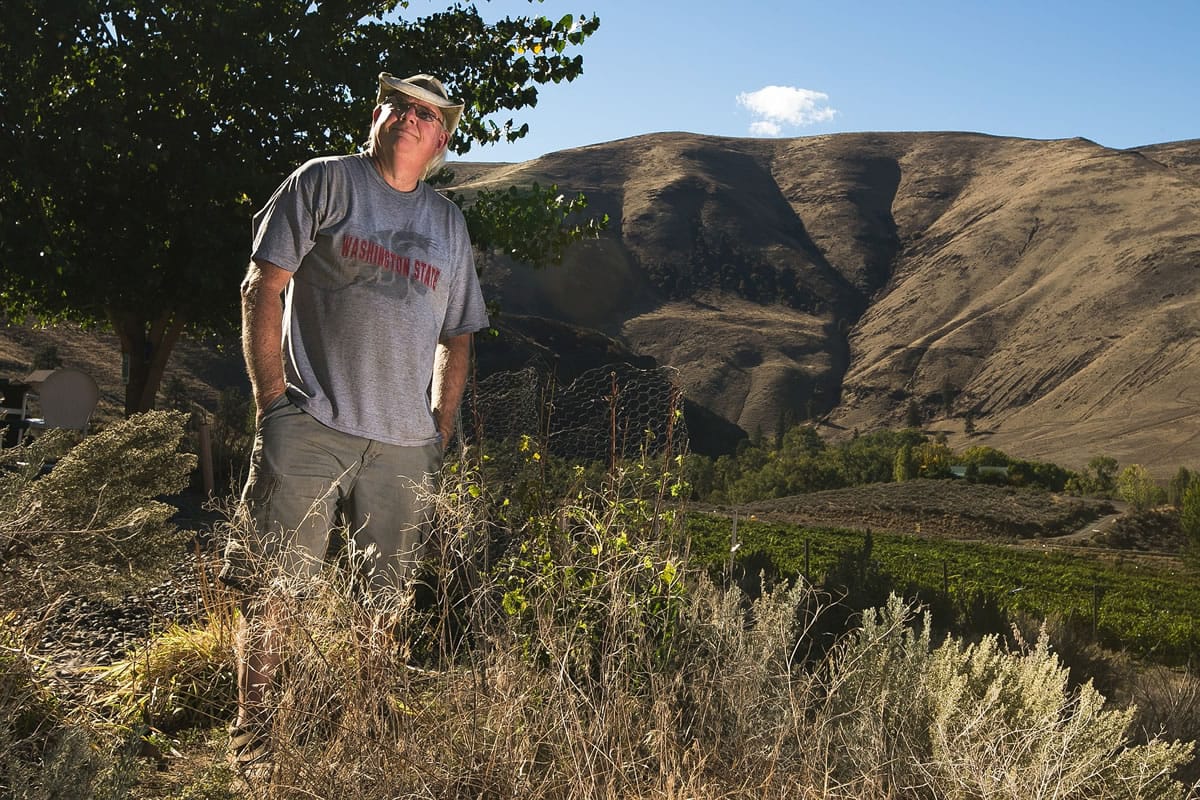YAKIMA — Gary Cox plans to make hard cider from Cosmic Crisp, the new apple variety that Washington State University breeders pitch as near-perfect and uniquely homegrown in an industry crowded with new choices.
Cox is one of 24 growers who won a lottery to receive the first batch of new trees in 2017, according to a list released to the public Tuesday.
After Cox found out and signed a contract in June, he began seeking a trademark for his Cosmic Crisp Cider and developing a website. Cider, he points out, is a fast-growing market, and a catchy name will help his brand stand out.
“Can you picture it?” said the 61-year-old owner of Cox Canyon Vineyards, in the Yakima River Canyon between Ellensburg and Selah. “The name alone ought to sell billions.”
The university’s plant-breeding program held a random lottery out of 445 applicants because of limits to nursery stock for the apple formerly known as WA 38, a cross between an Enterprise and Honeycrisp and named for green-yellow lenticels that dot its red skin like starbursts.
Cider expected by 2020
The first 300,000 trees won’t be ready for delivery until 2017 as university breeders work with nurseries to ramp up production. Cox aims to start selling bottles of cider by 2020.
Marketing teams hired by the university will pitch the apple as uniquely Washington in a competitive market that sees new, high-quality varieties all the time. Consumers like their go-to apples.
“There’s a lot of loyalty in the state,” said Tom Kelly, a plant variety licenser for WSU.
The Cosmic Crisp is a product of the university’s breeding program, which began in 1994 to develop varieties well suited to the Central Washington climate. Researchers spent 16 years working on the Cosmic Crisp, touted as firm, juicy, resistant to sunburn and slow to brown after being cut.
“They’re really good,” Kelly said. “I’m biased obviously, but it’s true.”
As the previous name indicates, Cosmic Crisp is the 38th variety developed by the university breeders, but only the third to reach commercial release and the first to receive a real name, Kelly said.
Most of the funding for fruit breeding comes from the Washington State Tree Fruit Research Commission, a collection of growers that awards grants to research projects. That’s why, for 10 years after the release, only Washington growers will have access to the Cosmic Crisp rootstock.
WSU retains rights
The university will retain marketing rights and keep the revenue from royalty agreements, Kelly said. Growers will buy the trees from six registered nurseries across the state, with $1 per tree going to the breeding program. The university also will charge production royalties in several years once the trees start producing fruit.
Such a practice is common now in the public research world but would have been unheard-of a few decades ago when there were fewer choices of varieties, said Desmond O’Rourke, an apple market analyst in Pullman and a former WSU professor. In the past, universities would have simply given away the rights for public use.
Sales crews will have their work cut out for them, too, O’Rourke warned.
New varieties frequently enter markets all over the globe, including Washington. They may not have been bred specifically for the local climate but companies test them and find they work.
Some of the state’s most successful varieties came from far away. Fujis are from Japan, Galas from New Zealand and Granny Smiths from Australia. The popular and lucrative Honeycrisp was developed in Minnesota.



